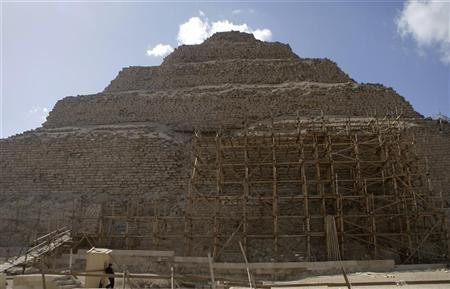Egypt: Gang Jailed for Stealing Fragment of Cairo's Great Pyramid and Pharaoh Khufu's Scrolls

An Egyptian court has sentenced nine people to jail for five years who are charged with stealing a fragment of Cairo's Great Pyramid.
Three of the defendants, from Germany, stole the artefact after claiming they were researches.
They were charged in absentia by the court in Giza, south of Cairo, for also taking pieces of an ancient scroll bearing the name of the Pharaoh Khufu as well as rock samples.
The three entered the inner chambers of the pyramid - ordinarily restricted to authorised archeologists and Egyptologists - in April 2013.
The self-named researchers took the scrolls after saying they were conducting research for the so-called Cheops Project, which was examining whether the artefacts were much older than previously thought.
In fact, they claimed that academics are concealing the true age and nature of the Great Pyramids, and that British pyramid researcher Howard Vyse, who discovered the cartridge of Cheops in the chambers, faked the authenticity of the item in 1837.
The other six people, all Egyptians - including three employees of the antiquities ministry, two pyramid guards and the director of a travel agency - were also jailed for five years for aiding the robbery.
According to a source, Egypt's former head of antiquities Zahi Hawass was also to be investigated for his alleged role in the crime, AFP reported.
"These remarks are totally unfounded," Hawass said.
The theft was discovered by Egyptian authorities at the end of last year. Last August, authorities announced the missing fragment was recovered.
© Copyright IBTimes 2025. All rights reserved.





















